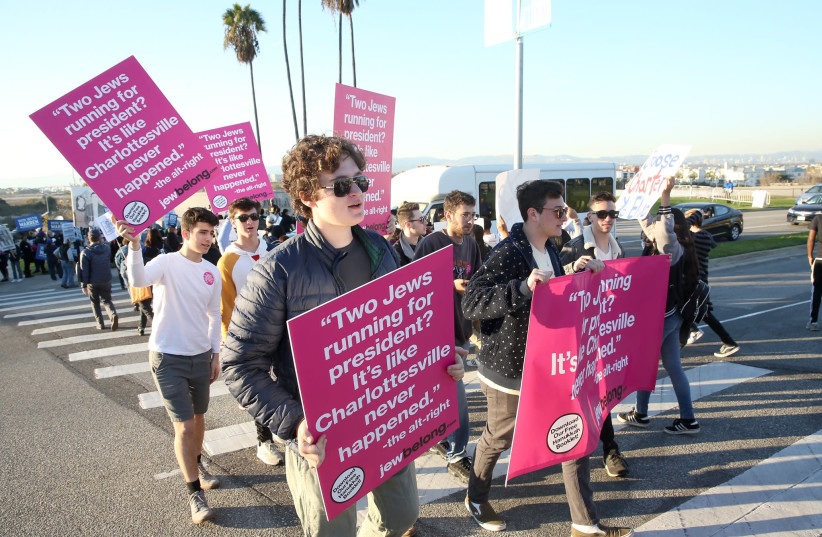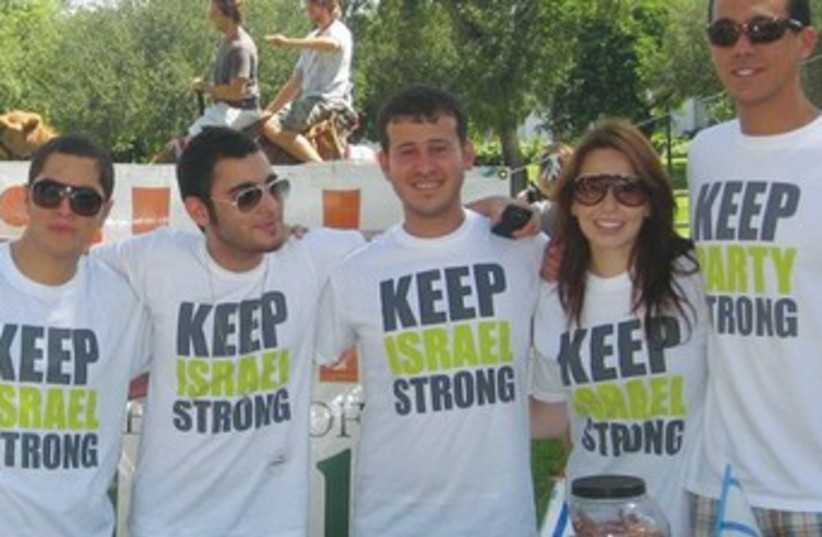"I don’t know a single Jewish college student who hasn’t experienced antisemitism.” That is not a declaration we imagined would describe college campus life in twenty-first century North America. Yet, those words, spoken by a student at Arizona State University, are being echoed by tens of thousands of college students across the United States and Canada.
From Ivy League universities to public and private colleges, students are distressed by professors who give lectures with titles such as “Zionism as Racism and Racial Discrimination” (April 2022 at Rutgers University). Anti-Israel activities include heckling, blocking or disrupting pro-Israel speakers or events. The simple choice to participate in a gathering at a Jewish organization on campus can lead to an encounter with hostile protesters and even vandalism.
"I don’t know a single Jewish college student who hasn’t experienced antisemitism.”
A student at Arizona State University
Hasbara Fellowships on college campuses
The good news? For more than 20 years, I have been heartened by hundreds of college student leaders from all walks of life who choose to make a difference by enrolling in the Hasbara Fellowship program. They are young women and men of diverse ideologies and backgrounds. Most are Jewish, but our initiative also draws non-Jews distressed by the demonization of Israel and the antisemitism they witness on campus.
The founding principle of the Hasbara Fellowship program, established in 2001, is seeing is believing. The program’s unique strength is the first-hand encounters of an immersive 16-day Israel experience. Students are not instructed or given homework in how to make their case. They are inspired and empowered by what they observe and do.
After they meet Muslim Arab members of the Israeli Parliament, they can counter the canard that Israel is an apartheid state. When rocket and mortar bombardments are denied as war crimes, they can speak of meetings with civilian residents of Sderot who have 15 seconds to run to a shelter for safety.

First-hand insights and boots-on-the-ground experiences are the basis for the skills that they cultivate. They also are guided and supported by knowledgeable professionals and specialists in social media so they can build on the momentum of what they have seen and heard to influence their peers and their college communities.
LAST YEAR, one college sophomore alumnus of the Hasbara Fellowship program joined the university’s student senate after he returned to his home campus. He utilized the guidance and support he gained from program specialists to reach out and seek common ground with activists in other spheres of campus life. When talk of a BDS resolution began to be heard, his articulate and credible voice was believed. The BDS motion was quashed before it even reached a vote.
The work is far from done
This is just one example of the hundreds of ways in which alumni of the Hasbara Fellowship program are igniting a transformative ethos of justice and pride on college campuses across North America. They challenge anti-Israel professors and are a counterforce to the organizers of Israel Apartheid Week. They are strong and principled opponents of BDS resolutions, which they often succeed in defeating.
“Never doubt that a small group of thoughtful committed individuals can change the world. In fact, it’s the only thing that ever has.”
Margaret Mead
But even as we take pride in our achievements, it is clear that our work is far from done. A study by Israel’s Foreign Ministry in September 2022 revealed that arguments in favor of BDS proved convincing to half of the US college students surveyed. These findings affirm the vital need to bolster grassroots voices of new college leaders throughout North America.
The engagement of young advocates is crucial, not only to call out misrepresentations and distortions, but to strengthen their own and their peers allegiance with the land of Israel and pride in Jewish heritage.

We are determined to bolster the ranks of our young student leaders by enlisting 200 new Hasbara Fellows in our 2022-2023 delegations. Our experience has proven that each knowledgeable and empowered student creates a multiplier effect. And we are grateful to the thoughtful and generous friends who share our vision and determination to build our numbers.
Student activists of all ideologies are known to quote the words of anthropologist Margaret Mead: “Never doubt that a small group of thoughtful committed individuals can change the world. In fact, it’s the only thing that ever has.” The Hasbara Fellowship Program attests to that truth with the words of our own tradition: “It is not upon you to complete the work, but neither are you free to desist from it.”
The writer began his involvement with the Hasbara Fellowships as an undergraduate at the University of California at Santa Barbara. He earned an MA in Middle Eastern Studies at Hebrew University of Jerusalem. He has held leadership positions at Hasbara Fellowships headquarters in Los Angeles since 2017.
